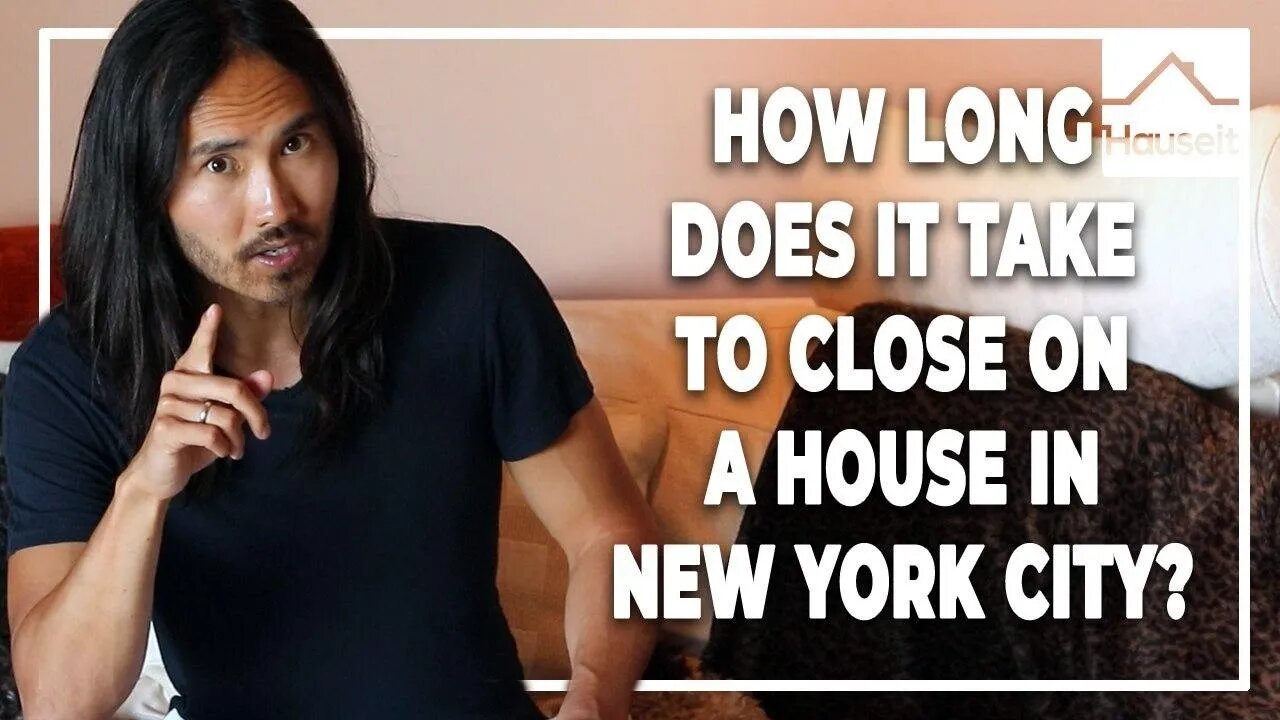Premium Only Content

How Long Does it Take to Close on a House in New York City?
Save 2% When You Buy a Home: https://www.hauseit.com/hauseit-buyer-closing-credit-nyc/
Save All 6% When You Sell: https://www.hauseit.com/agent-assisted-fsbo/
Just how long does it take to close on a house in NYC? Congrats on making it this far. You’ve likely just submitted an offer or won a best and final offer process. If your buyer’s agent hasn’t bothered to explain to you what happens next from contract to closing, then it’s time to get rid of your real estate agent and sign up with one of our seasoned partner brokers who will not only explain the home buying process in detail, but also provide you with a buyer agent rebate at close!
Average Time to Close on a House in NYC
The average time to close on a house in NYC after you have a fully executed purchase contract is anywhere from 30 days if you are buying all cash to 90 days if you are purchasing with a mortgage.
The answer to how long does it take to close on a house in NYC therefore depends on whether you are financing your purchase or not.
The contract to closing timeline for all cash condo or house purchases where board approval isn’t required can take only a couple of weeks.
Buying a co op in NYC will usually take longer than buying a condo in NYC because of the purchase application, coop board interview and coop board approval.
This is the case even if you do not need financing for your coop purchase as you’ll have to accommodate the board’s schedule.
What Happens After Signing a Contract on a House?
Once you have signed the purchase contract and handed over a check for your contract deposit to your lawyer, he or she will messenger it to the seller’s attorney.
You will need to stay on top of the seller to make sure the seller promptly counter-signs the contract. One or two business days is typical and commonly accepted.
This is critical as you are bound by the contract but the seller is not until the seller has counter-signed the contract and returned a copy of the fully executed contract to you.
That means the seller could hold on to your contract while shopping your offer and sell to someone else, while you run the risk of having your contract deposit put in escrow at any time.
Once you have signed the purchase contract and handed over a check for your contract deposit to your lawyer, he or she will messenger it to the seller’s attorney.
You will need to stay on top of the seller to make sure the seller promptly counter-signs the contract. One or two business days is typical and commonly accepted.
This is critical as you are bound by the contract but the seller is not until the seller has counter-signed the contract and returned a copy of the fully executed contract to you.
That means the seller could hold on to your contract while shopping your offer and sell to someone else, while you run the risk of having your contract deposit put in escrow at any time.
After the seller has counter-signed and fully executed the purchase and sale contract, the listing is deemed to be officially in contract. At this point, you should focus your energies on your mortgage broker or bank to get them to finish underwriting and deliver to you a mortgage commitment letter.
You should authorize your bank to order an appraisal if you haven’t done so already. Many buyers will wait to order the appraisal which can cost them $1,000 or more until they’re sure they have a deal. If you fall in this category, then simply remember to authorize the appraisal as soon as you have a fully signed contract.
The appraisal is important because the appraised value is what your bank will lend against on a loan to value (LTV) basis, not the contract price.
Pro Tip: Check out Hauseit’s Forum for insider insight on how do appraisers get selected by banks in NYC and how the appraisal process really works.
Once you have a satisfactory appraisal and a mortgage commitment letter, it’s time to lock your mortgage interest rate. This is commonly referred to as a rate lock.
Keep in mind that rate locks usually have a time limit, say 60 or 90 days.
Therefore, it’s important to time it to give yourself ample room in case the closing date is delayed. Keep in mind that the closing date in contracts gives either party wiggle room of typically 30 days (i.e. closing will take place “on or about” a certain date).
Even after 30 days, it’s very likely that a counter party would prefer to wait and send a time of the essence letter rather than sue and scuttle the deal.
As a result, don’t get too caught up on watching the 10 year treasury yield and trying to lock your rate too soon. It’ll end up being way more expensive if your rate lock expires before your closing actually happens.
Hauseit LLC, Licensed Real Estate Broker
Tel: (888) 494-8258 | https://www.hauseit.com
_
#hauseit #hauseitnyc
-
 8:07
8:07
MattMorseTV
3 hours ago $0.13 earnedTrump just LOWERED PRICES by 75 PERCENT.
43110 -
 LIVE
LIVE
Misfit Electronic Gaming
5 hours ago"LIVE" "Blind Descent' +"Dollhouse of Dead" Playtest 10 Followers till we hit 1000! We CAN do this!
55 watching -
 21:53
21:53
Glenn Greenwald
5 hours agoMichael Tracey on the Street: What Do People Think of the Epstein Case?
82.6K52 -
 LIVE
LIVE
megimu32
2 hours agoOTS: Board Games Gone Wild! The Loud, Weird & Chaotic Games That Raised Us
151 watching -
 LIVE
LIVE
DamnDanieI
2 hours agoKill First, Loot Later – OTG Live
228 watching -
 56:41
56:41
Donald Trump Jr.
6 hours agoLies, Leaks, and Lawfare: Censorship Corruption Exposed | TRIGGERED Ep.263
112K106 -
 LIVE
LIVE
Precision Rifle Network
3 hours agoS4E25 Guns & Grub - Rex Is Back, I shot the 6.5PRC finally...
39 watching -
 LIVE
LIVE
rhywyn
1 hour agoうつ
33 watching -
 LIVE
LIVE
RyuMuramasa✧
3 hours agoNEW Everdark Sovereign | Elden Ring Nightreign | LIVE Playthrough
41 watching -
 1:17:04
1:17:04
Nikko Ortiz
10 hours agoLive - News, Politics, Podcast And Naaah Im Playin We Chillen
1.99K